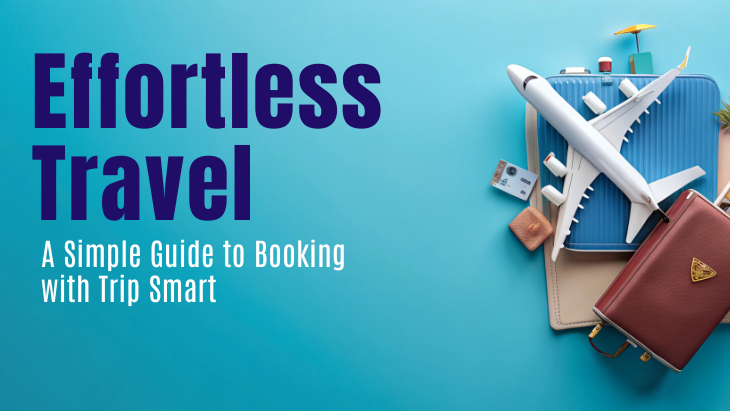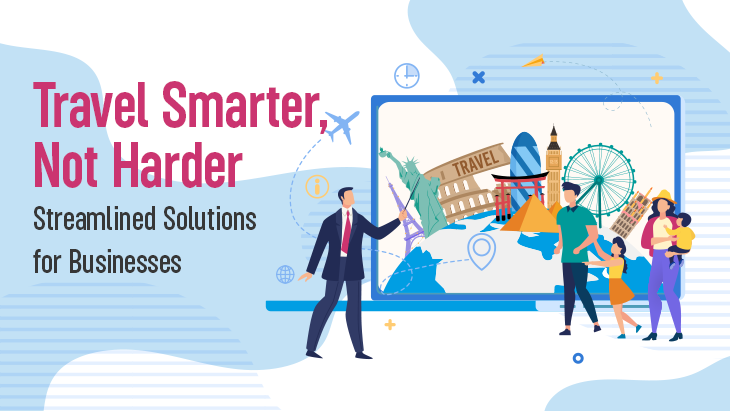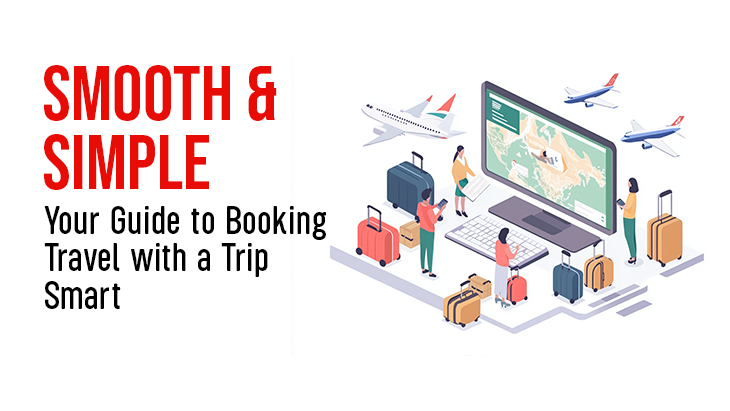Corporate travel is critical to building relationships, closing deals, and growing businesses in today's fast-paced business world. Yet, coordinating business travel effectively can be complicated, particularly when handling costs, time pressures, and logistics. Smarter Corporate Travel & Expense Management. To drive productivity and reduce stress, businesses must implement smarter travel solutions that simplify processes, improve traveler experiences, and optimize costs. By utilizing technology, data-driven insights, and strategic planning, companies can turn their travel operations into a well-oiled machine.
The Importance of Smart Business Travel
Business travel is not merely reserving flights and hotels; it's about allowing employees to concentrate on their jobs while reducing interruptions. Poor travel planning can result in lost time, unnecessary expenses, and undue stress for employees. Simplifying business travel enables organizations to increase efficiency, employee satisfaction, and ultimately better business results.
Firms that focus on smart travel solutions also enjoy enhanced compliance with corporate policies, enhanced safety protocols, and more efficient utilization of corporate travel budgets. Through the implementation of contemporary travel management practices, businesses can transform corporate travel from a headache into a strategic asset.
Using Technology for Smooth Travel
Technology has revolutionized business travel, offering innovative tools that simplify the entire process. From AI-driven booking platforms to real-time travel updates, smart solutions enable businesses to optimize their travel programs with minimal effort.
AI-Powered Travel Assistants
AI and automation have transformed the way businesses plan and manage travel. Smart travel assistants, such as chatbots and virtual travel agents, help employees find the best flights, accommodations, and transportation options based on their preferences and company policies. AI-driven platforms analyze historical data and suggest cost-effective itineraries, reducing the time spent on booking travel.
Mobile Apps for On-the-Go Management
Corporate travelers do not have to deal with multiple confirmations and itineraries anymore. Mobile apps centralize all travel information in one location, with live flight updates, hotel reservations, and ground transportation. Travelers can use apps such as TripIt, Concur, and TravelBank to organize their trips easily and keep them updated with any planned changes.
Expense Management Tools
Perhaps the dullest part of business travel is expense tracking and submitting reimbursement claims. Expense management software makes it easy by directly connecting with corporate travel platforms. Workers can take photos of receipts, label expenses, and send reports in a few clicks. Sites such as Expensify and SAP Concur do away with the drudgery of manual expense tracking, making it more accurate and time-saving.
Cost Optimization Strategies
Corporate travel costs can quickly escalate, but with proper planning, businesses can save a great deal of money without sacrificing staff comfort and productivity.
Intelligent Booking Policies
Having clearly articulated travel policies makes sure that employees make cost-effective choices while keeping within company rules. Promoting early bookings, establishing preferred airline and hotel partnerships, and utilizing corporate discounts regulate costs.
Dynamic Pricing and AI Forecasts
AI-based pricing software tracks market trends and forecasts fare movement, enabling firms to reserve flights and hotel bookings at the best prices. Companies utilize dynamic pricing applications to capitalize on cheaper rates by virtue of automatic reservation booking, considering the best pricing windows.
Travel Rewards and Loyalty Programs
Joining airline and hotel loyalty schemes allows companies to earn points and benefits, which can be redeemed against future travel costs. Incentivizing staff to utilize preferred suppliers simplifies spending and optimizes company travel rewards.
Improving Employee Experience and Productivity
Company travel can be draining, and businesses need to take care of employees to ensure productivity is not compromised. Effective travel practices enhance employee satisfaction and minimize burnout.
Flexible Travel Arrangements
Offering flexibility in travel arrangements, including the ability to select preferred flight times, upgrade accommodations as needed, and utilize bleisure (business + leisure) travel opportunities, can greatly improve the overall travel experience.
Efficient Check-Ins and Security Protocols
Slow airport procedures are annoying. Employee incentives to participate in TSA PreCheck, Global Entry, or other expedited security programs help decrease wait times and increase productivity. Mobile check-in and electronic boarding passes streamline the travel experience.
Wellness-Focused Travel Initiatives
Regular business travel can be stressful and affect employees' physical and mental health. Organizations should take into account policies that give importance to traveler health, including access to airport lounges, comfortable stays, and wellness programs like gym membership or stress management tools.
Sustainable Business Travel
With sustainability at the forefront of every organization globally, companies have no choice but to embrace environmentally friendly travel. The use of sustainable travel policies not only saves the environment but also boosts corporate social responsibility.
Selecting Green Travel Options
Having employees choose direct flights, energy-saving accommodations, and green transport options (e.g., public transport or electric car rentals) lowers carbon emissions. Organizations can also engage in collaboration with environmentally friendly travel suppliers that emphasize sustainability programs.
Carbon Emission Offsetting
Organizations offset carbon emissions through investments in carbon offset programs, which are aimed at erasing the carbon footprint of corporate travel. Such programs invest in clean energy initiatives, reforestation, and other green activities that offset the carbon emissions resulting from business travel.
Virtual Meetings as an Alternative
Although face-to-face meetings are still crucial, companies can minimize unnecessary travel through the use of video conferencing applications such as Zoom, Microsoft Teams, and Google Meet. By adopting virtual collaboration, businesses can minimize travel expenses and emissions while ensuring efficient communication.
The Future of Business Travel
The business travel landscape is changing very fast with new technologies forging how businesses manage trips. New technologies such as artificial intelligence, blockchain, and biometric verification will further improve the security, efficiency, and personalization of business travel.
Companies that are actively embracing smart travel solutions will be in a stronger position to manage challenges, minimize costs, and offer travelers hassle-free journeys. By maintaining a balance of efficiency, cost savings, and traveler well-being, organizations can make corporate travel a valuable resource instead of an administrative headache.
Conclusion
TripSmart business travel does not have to be a stressful or complicated affair. With the proper policies, technology, and strategies in place, businesses can simplify travel management, save money, and increase employee satisfaction. By adopting AI-powered tools, eco-friendly practices, and intelligent booking policies, businesses can travel smarter, not harder making corporate travel a seamless, efficient, and productive process.





Leave a reply